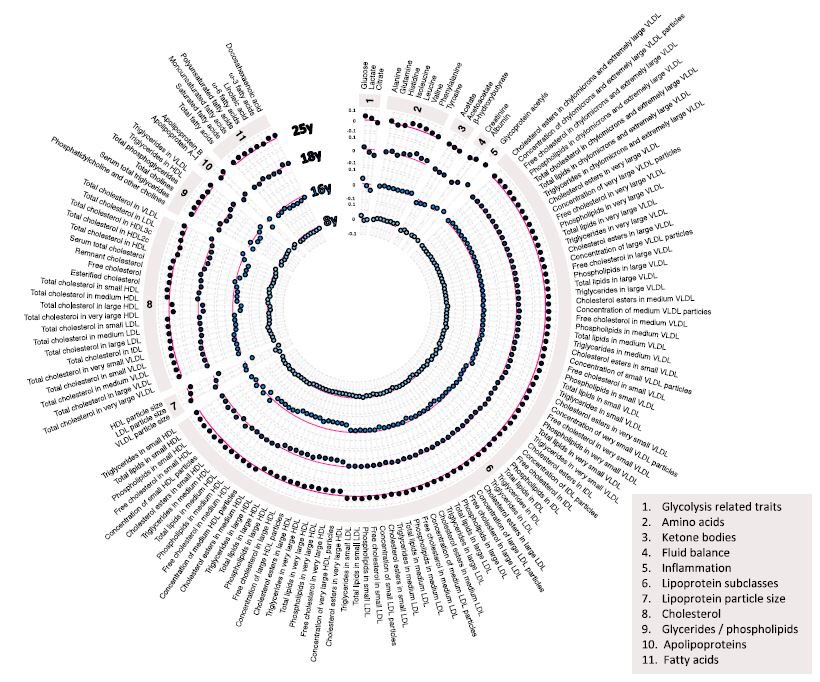Ever wonder how diabetes begins?
Our new paper in @ADA_Journals looks at effects of being more genetically prone to adult diabetes on metabolism across early life.
We found signs of disease liability ~50 yrs before peak onset. https://care.diabetesjournals.org/content/43/7/1537
Our new paper in @ADA_Journals looks at effects of being more genetically prone to adult diabetes on metabolism across early life.
We found signs of disease liability ~50 yrs before peak onset. https://care.diabetesjournals.org/content/43/7/1537
We linked genetic risk for type 2 diabetes with metabolites from @NgaleHealth measured 4x in @CO90s, from childhood to young-adulthood.
Great joint effort with @caroline_bull & @EmmaEVincent @nic_timpson @mendel_random @anubha_M_Oxf & @mrc_ieu @EBIBristol
Great joint effort with @caroline_bull & @EmmaEVincent @nic_timpson @mendel_random @anubha_M_Oxf & @mrc_ieu @EBIBristol
Key assumptions here:
1. Type 2 diabetes is a metabolic disease & blood metabolism is a good place to look.
2. Genetic risk for adult disease can be used to isolate trait patterns specific to early stages of the disease process.
1. Type 2 diabetes is a metabolic disease & blood metabolism is a good place to look.
2. Genetic risk for adult disease can be used to isolate trait patterns specific to early stages of the disease process.
Traits altered include lower lipids in certain HDLs, higher BCAAs, & higher inflammatory GlycA.
Higher BMI is also apparent from the start, which we know strongly influences such traits.
Higher BMI is also apparent from the start, which we know strongly influences such traits.
‘Liability’ is crucial here. These are subtle differences in the metabolism of young healthy people & are unlikely to be harmful.
The point is to view disease activity long before the disease gets diagnosed & becomes a problem. I.e. prevention aims.
The point is to view disease activity long before the disease gets diagnosed & becomes a problem. I.e. prevention aims.
Look familiar @EmilyKraincArt?
The main figure was painted for Creative Reactions Bristol last year.
Slightly different process!
The main figure was painted for Creative Reactions Bristol last year.
Slightly different process!
Whether intervening on such traits would prevent diabetes onset isn’t yet clear.
But BMI is a known causal driver & the same approach applied to CHD flags up VLDLs & LDLs: https://wellcomeopenresearch.org/articles/3-114/v2/iparadigms.
This could be a rapid way of short-listing targets for closer follow-up.
But BMI is a known causal driver & the same approach applied to CHD flags up VLDLs & LDLs: https://wellcomeopenresearch.org/articles/3-114/v2/iparadigms.
This could be a rapid way of short-listing targets for closer follow-up.
So: Diabetes doesn’t develop overnight & susceptibility has a long reach.
But risk is modifiable. Body fat is one driver & we know that obesity in early life is only likely to cause adult diabetes if it persists into adulthood: https://www.bmj.com/content/369/bmj.m1203.
But risk is modifiable. Body fat is one driver & we know that obesity in early life is only likely to cause adult diabetes if it persists into adulthood: https://www.bmj.com/content/369/bmj.m1203.

 Read on Twitter
Read on Twitter



